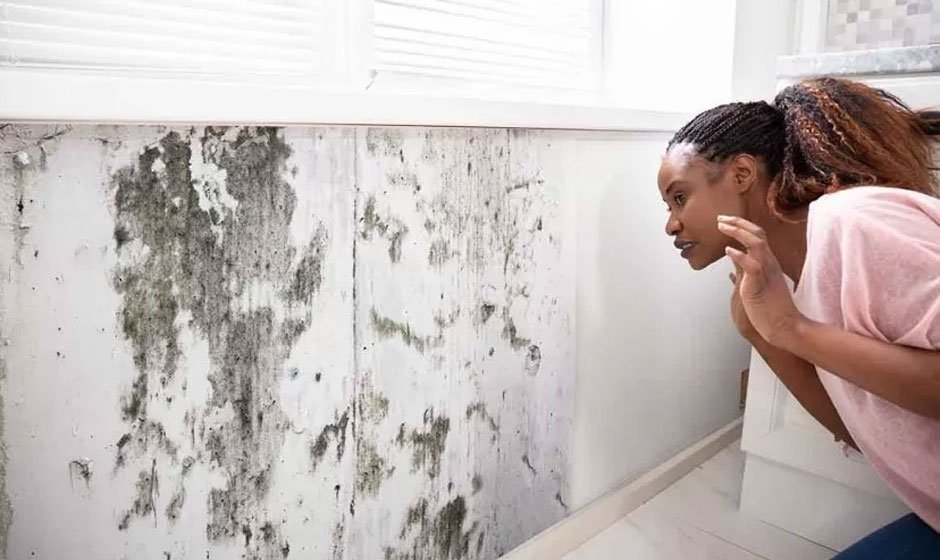Buildings frequently experience mould growth, particularly in places with high humidity, moisture levels, and restricted airflow. In terms of mould removal in Melbourne, bathrooms, for instance, might be a problem area. Additionally, basements are frequently a problem. However, mould can develop on any surface, including ceilings, wallboards, ceramic tile, brick, and cement. Mould remediation is frequently a do-it-yourself project, depending on the affected area’s size and the problem’s seriousness. However, those who try the cleanup should refrain from employing hazardous chemical cleaning agents, take the necessary safety precautions, and adhere to instructions for cleaning the material.
When Can be Mould Harmful for Health?
Moulds can be hazardous to health and a hygiene issue in significant concentrations inside. Some mould species can be highly poisonous. The range of symptoms includes minor discomfort and life-threatening ones. Only expert remediation eliminates health concerns and improves indoor air quality without introducing mould.
What are Spores from Mould?
With a few notable exceptions, mould spores range in size from 2 to 30 m. Less than 10 m is the average diameter of spreading organs. Spores are created to grow and spread, survive for long periods suspended in the air, and can thus be inhaled. Mycotoxins, airborne fungitoxins, frequently bring on allergies. Some fungus species can cause respiratory disorders or exacerbate them in susceptible, immunocompromised, or young people. Therefore, moulds present a risk to human and animal health at large concentrations.
Natural Mould Cleaning Solutions
1. Vinegar
Vinegar, primarily distilled white vinegar, is one of the most efficient, healthy, and non-toxic mould cleaners. A by-product of diluted alcohol products is vinegar. Over 80% of mould species have been proven to respond well to the mild acidity of white vinegar. White vinegar is relatively economical, safe, and accessible at most grocery stores. The smell of vinegar is arguably the sole drawback; it is powerful but unharmful. Additionally, the smell swiftly leaves that’s why some people use this solution for DIY gutter cleaning as well. Although vinegar is very safe, users should use protective gloves, a breathing mask, and goggles to remove mould to reduce the body’s exposure to mould spores.
2. Baking Soda
Nahcolite, often known as sodium bicarbonate, is a naturally occurring form of NaHCO3. It is more frequently called baking soda and is present in almost all kitchens. Baking soda is a beneficial commodity used in toothpaste, baking, cleaning, and deodorising. It can also be used as an all-natural, non-toxic mould removal in Melbourne remedy.
When exposed to an acid like vinegar, baking soda, an alkaline chemical, creates carbon dioxide. Because of these bubbles, baking soda is frequently used in breads. Baking soda needs to be fresh to function at its best. You can determine this by adding a drop of vinegar to a pinch of baking soda. If it bubbles ferociously, the mould should be removed. Baking soda can be used with or instead of vinegar to remove the mould.
3. Hydrogen Peroxide
Hyd peroxide is another natural, non-toxic cleaning many people already have at home. When H2O2 is present in its purest state, it is somewhat thicker than water and pale blue. Despite the moniker appearing to be an artificial creation, rain in nature contains it (in trace but not negligible levels). As an oxidant, bleaching agent, and antiseptic, hydrogen peroxide is frequently employed. Additionally, it works well to get rid of different kinds of mould. When hydrogen peroxide comes into touch with bacteria, it bubbles. This bubbling activity demonstrates how the hydrogen peroxide is reducing the mould.
4. Lemon Juice
Lemon juice removes mould naturally and non-toxicly and leaves a crisp, fresh scent behind. Because it contains 5% acid, it works well to eliminate mould. Lemon juice can be bought as a concentrate or freshly squeezed. It should be used at maximum power for gutter cleaning and mould removal. You can apply it with a spray bottle or soak a scrubbing sponge. Cleaning with plain soap and water should be the first step in any lemon juice treatment of mould. Apply lemon juice immediately to the mould after rinsing. Immediately use a brush or scrub sponge to clean the area. The procedure should be repeated as with other therapies until positive outcomes are obtained.
5. Tea Tree Oil
An all-natural essential oil with antibacterial qualities that have proven successful in eradicating many kinds of mould, fungi, and mildew is the Melaleuca Alternifolia oil from Australia. Look for tea tree oil that contains no more than 10-15% of cineole and no less than 30% of terpinen-4-ol.
Two tablespoons of tea tree oil can be combined with two cups of water or two cups of distilled white vinegar to make a natural mould-cleansing solution. Be ready because the vinegar and tea tree oil smell can linger for several hours.
However, the smell is not dangerous and can be used for mould removal in Melbourne. Spray the prepared solution until thoroughly moistened directly onto the afflicted area. It will enable the combination to thoroughly clean the mould by soaking it in a more porous material. Wipe or scrub the area after the solution has dried for at least an hour. Removing the mould stain from stubborn locations could require several applications and laborious work. In some circumstances, a surface cleaner could be required to remove the discolouration.
Get The Best Mould Removal Services with Exterior Clean Melbourne
The first step in keeping your home a healthy place to live is to remove mould properly. The eight recommendations in this manual provide a thorough strategy, including everything from protective measures to secure removal methods. Homeowners may protect their homes’ health and structural integrity by swiftly and methodically eliminating mould issues, creating a clean and mold-free living environment.






